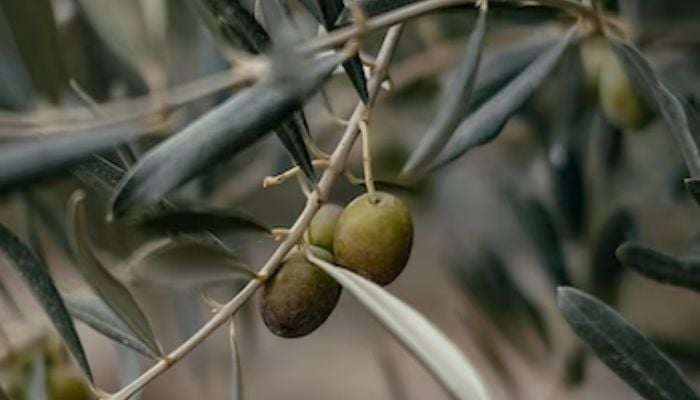Olive leaves could treat endometriosis, study reveals
Naturally occurring substance oleuropein in olive leaves can specifically block estrogen receptor-beta activity
December 16, 2022

The secret to healing endometriosis in women may lie in olive leaves, a study published in the Journal of Biomedical Science claimed. Up to 15% of women of reproductive age in the United States alone and millions of women across the world are affected by the crippling disorder.
Women who have endometriosis produce tissue outside of the uterus that resembles the endometrium, the lining of the uterus. It results in chronic inflammation, which can cause the pelvis and other places to develop scar tissue.
“Endometriosis depends on estrogen, a hormone well known for regulating a woman’s reproductive functions," said corresponding author Dr Sang Jun Han, associate professor of molecular and cellular biology in the Center for Reproductive Medicine at Baylor College of Medicine, in a university release.
"Estrogen also affects other organs such as the heart and blood vessels, bones, breasts, skin, hair, mucous membranes, pelvic muscles and the brain."
Since estrogen is closely associated with the illness, recent strategies have focused on systematically eliminating estrogen and using anti-inflammatory medications. The problem is that these medications don't work very well and could even have unfavourable side effects.
Han and his team are currently searching for more practical solutions. Han has previously demonstrated that estrogen receptor-beta (ER-beta), one of the two receptors that mediate estrogen's effects on cells together with estrogen receptor-alpha (ER-alpha), plays a key role in the development of the illness.
The study's first author, Dr Yuri Park, a postdoctoral associate in the Department of Molecular and Cellular Biology at Baylor, said: "These results suggest that selectively suppressing the activity of ER-beta could help treat the condition without side effects of current hormonal therapies targeting ER-alpha."
Han and his team have recently worked with cell cultures in their lab and have thoroughly reviewed a library of natural products in search of substances that could function as non-hormonal therapeutic options for the ailment.
They discovered that the naturally occurring substance oleuropein, which is present in olive leaves, can specifically block ER-beta activity but not ER-alpha activity. Oleuropein also had the ability to stop the development of endometrial lesions in mice without causing any harm.
Han shared that oleuropein therapy was neither liver damaging nor did it interfere with the capacity of female mice to reproduce.
Oleuropein increased the rate of pregnancy in endometriosis-affected mice. Our most recent research indicates that oleuropein may be safer than other medications because it is less expensive than hormone therapy.
Currently, doctors advise endometriosis patients to utilise birth control to manage their symptoms. While many patients benefit from this, others feel stuck.
Birth control has a number of undesirable side effects, including headaches, depression, acne, and weight gain. Many people will put up with these issues as long as they get relief from their period pain. This team hopes that future research will examine oleuropein as a natural alternative for the treatment of endometriosis.









